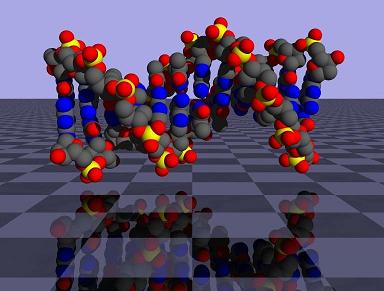BLANK LINEUP - in order to assess the accuracy of a witness police officers may present a police lineup that does not contain the suspect.
BYSTANDER EFFECT - a scientifically proven finding that as the number of bystanders increases, the likelihood of a bystander helping someone in distress decreases.
- C -
CATHARSIS HYPOTHESIS - The theory that states that if angry persons can express aggression in a safe manner, they will be less likely to engage in harmful behaviour. Has possible implications with offender treatment.
CASTRATION - the surgical removal of the testes or ovaries. In the past was used as a treatment for male sex offenders. The ethicity and validity of this approach has come into question.
CHILD MALTREATMENT/ABUSE - actions either physical or psychological that harm children. Can be either a voluntary or involuntary action.
COGNITIVE DISSONANCE - the unpleasant state that may occur when an individual has inconsistencies between their attitudes or attitudes and behaviour. May occur in offenders concerning their morality and behaviour.
COGNITIVE THEORY OF AGGRESSION - a fairly modern theory that suggests that aggression stems from complex interactions between cognition, affective states (emotion), and other additional components.
COMBAT FATIGUE - a traumatic neurosis characterized by the presence of somatic disturbances and anxiety reactions that have been brought on by extended exposure to combat. To layman's it has been called 'shell shock'.
CONFLICT - an action taken to block or interfere with others' interests, because of the perception that ones opponent is doing the same, or that each others actions are incompatible.
CONFORMITY - social influence that causes and individual to change his/her attitudes/behaviour in order to conform to social norms. A strong example of this is the soldiers actions in NAZI germany.
COMPOS MENTIS - to be competent, or not to be legally insane or mentally deficient. In contrast to non compos mentis.
CRIMINAL BEHAVIOUR PROFILING - a criminal investigation technique in which crime scenes and additional evidence are analyzed in order to discern patterns in the offenders behaviour, with which a behavioural and physical description of the offender can be created. Has also been called: "profiling", "offender profiling", "investigative profiling".
CRIMINAL TYPE - a category of individuals whom repeatedly engage in criminal and/or antisocial behavior. They apparently have a constitutional tendency towards behaving in that direction.
CRIMINOLOGY - the scientific study of crime, criminals, and penology. This science often considers both social and psychological aspects of criminality.
- D -
DACTYLOSCOPY - this is the scientific analysis of fingerprints. Fingerprint experts have been involved with law enforcement for almost a hundred years. Recent advances in dactyloscopy have continued to make fingerprint analysis of key importance (i.e., new methods pull fingerprints off underwater surfaces, skin, etc.).
DEADLINE TECHNIQUE - a technique used in many areas, in which the target is told that they have only a limited time to accept an offer. Often used in criminal interrogations (i.e. "if you confess now the crown attorney will go easy on you").
DEFENSIVE WOUNDS - wounds commonly found on a victims arms, hands, or fingers sustained when the victim was trying to defend self from an assault.
DELINQUENT - a juvenile offender under the age of 18, or one who commits an offense that is not considered a serious crime.
DELINQUENCY - a minor offense against the criminal code, or the characteristic of being a habitual offender.
DEPERSONALIZATION - an offenders attempt to eliminate the identity of the victim so that they do not represent or resemble the person whom has caused their psychological distress. Actions can range from covering the victims face with a towel or blanket up towards extreme battery.
DEVIANCE - behaviour, ideas, and attributes that are responded to negatively by others. Going against the social norm, whether it is criminal (murder/rape), social (wearing red to a funeral), or physical (facial tattoo's, physical abnormality). Deviance can change depending on the setting of the act/attribute (cursing with friends vs. in church), the age of the actor (baby soiling cloths vs. teenager), etc.
DEVIANT - one who acts defiantly, have socially deviant thoughts, or has socially abnormal attributes. Even though a "hunchbacked person" is not necessarily bad, society tends to look at them negatively as "deviant" from the norm.
DIRECT AGGRESSION - an attack placed upon what the individual believes is the source of their frustration. As opposed to Displaced Aggression
DISORGANIZED - An offender classification used in many criminal profiling systems. Such an offender tends to carry out spontaneous and impulsive acts in a manner that is sloppy and at high risk of leaving evidence. Such offenders tend to know the victims (at least by sight), stick to their own geographical locations, and use a blitz like assault with a weapon of convenience. Sexual acts often occur postmortem. SEE 'organized'
DISPLACED AGGRESSION - an attack against a person/object that is not the original source of frustration. This act will occur when the source of the frustration is either unavailable or is likely to retaliate.
DISTRAUGHT WITNESS - The distraught witness bears a great deal of emotional distress. This distress is the direct result of either witnessing the crime or indirectly from their relationship with the victim.
DRIVE THEORIES OF AGGRESSION - the theory suggesting that aggression is created by external conditions that arouse the motive to harm others. See "frustration aggression hypothesis".
- E-
ECOMANIA - a pathological attitude direct towards one's family. It is characterized by domineering behavior. This attitude has implications in familial abuse.
EROTOMANIA (1)- a pathological exaggerated sexual interest. In males this condition is satyriasis; in females, nymphomania.
EROTOMANIA (2)- an obsessive love by an individual towards one of particularly high status (i.e. celebrities). Subject often believes that the other person shares mutual feelings of love. Efforts to contact the object of their obsession, along with stalking and surveillance, is common.
EUNUCH - a castrated male.
EXHIBITIONISM - a compulsion to expose parts of the body, most often the sex organs, for the purpose of sexual excitement.
- F -
FAMILICIDE - when an individual kills his/her spouse and one or more of his/her children
FEAR-INDUCED AGGRESSION - responses believed to be biologically programmed into us so that we act in an aggressive manner towards any form of forced confinement.
FETISHISM - a pathological condition in which sexual arousal and gratification is induced by the handling of objects or nonsexual parts of the body.
FLAGELLATION - the practice of submitting to whipping for sexual or penitential purposes.
FLAGELLOMANIA - sexual excitement aroused by whipping.
FOLIE A DEUX - the occurrence of psychosis in two persons who are closely associated to each other (i.e., husband and wife).
FORCED FANTASY - an emotional fantasy that is deliberately promoted by the therapist (analyst). This procedure has been criticized for its ability to create false memories.
FORENSIC - "pertaining to the courts".
FORENSIC ANTHROPOLOGY - The forensic anthropologist examines the victims bones to determine a number of key facts. Information such as gender, age, looks, previous trauma, and disease can all be found. The forensic anthropologist is often of key relevance to the identification of remains. They use a number of means, including molecular DNA analysis.
FORENSIC ARTIST - the forensic artist provides an elaborate sketch of the offender. This process is undertaken via the information from an eyewitness. Many investigators now use computer programs to develop offender renditions.
FORENSIC CHEMISTRY - the forensic chemist studies the molecular aspects of the crime scene. They can match fibers, paint, and dyes to particular objects. They will identify relevant chemicals and particles.
FORENSIC DENTISTRY - these experts serve a identification function. Via the analysis of a corpses teeth and previous dental records they can make a positive identification. They also will analyze bite patterns so that they can identify who was eating a particular meal or even who bit somebody.
FORENSIC ENTOMOLOGY - the entomologist studies insects. A number of pieces of key information can be discovered from this analysis. The rate of body decay via insects can directly correlate to time of death. The presence of certain insects can identify previous dump sites, etc.
FORENSIC GEOLOGY - the forensic geologist can determine where a person or object has been by analyzing soil samples. Soil can be found on a pair of shoes, tire treads, or a body. They can be matched up with common soil types to predict quite specifically where the object/person has been.
FORENSIC LINGUISTICS - the forensic linguist analyses either the spoken or written word. They can identify whether a message was presented by the same individual, what the individuals underlying intent is, the individuals educational and cultural background, as well as the presence of pathology.
FORENSIC ODONTOLOGY - see 'forensic dentistry'
FORENSIC PATHOLOGY - the forensic pathologist analyzes the remains of a body. They attempt to determine the cause and time of death via autopsy.
FORENSIC PHOTOGRAPHY - the crime scene photographer attempts to record every component of the crime scene via photograph. They depict the scene from multiple angles, using multi-functional cameras, and through the consistent evaluation of size and distance.
FORENSIC PSYCHOLOGIST - a Ph.D. psychologist whom specializes in the realm of forensics. The forensic psychologist may have either a Ph.D. in forensic psychology, clinical psychology with a forensic focus, or experimental psychology with a forensic focus.
FORENSIC PSYCHOLOGY - the discipline of psychology that deals with the legal system, including the front end operations (police work, investigation), legal proceedings (expert witness, competency & psychological assessment, jury selection), and institutionalization (confinement, treatment, parole hearings). Forensic psychologists may also be called on to: evaluate new laws and programs, assist in the assessment and hiring of new police officers, etc.
FORENSIC SCULPTORS - like the forensic artist, the sculptor attempts to create an image of either an offender or a victim. The sculptor's goal is to create a three dimensional version of the image.
FORENSIC SEROLOGY - the serologist studies blood and other bodily fluids for identification purposes. The serologist is often involved in DNA fingerprinting (the identification of an individual based on body cells).
FRAUDULENT WITNESS - While not having any first hand knowledge of the crime, the fraudulent witness is an active attention seeker whom comes forward to offer fraudulent evidence.
FROTTAGE - sexual gratification achieved by rubbing against the clothing of a member of the opposite sex in a crowd.
FRUSTRATION-AGRESSION HYPOTHESIS - the drive theory of aggression that suggests frustration builds and creates aggression (ex. road rage, person losing job & family becoming homicidal).
- G -
GROUP POLARIZATION - the tendency for a group to shift toward more extreme position then those that they initially held as a result of group discussion. This has been seen in jury deliberations.
GROUPTHINK - tendency for highly cohesive groups to assume their decisions can't be wrong, that all members support their decision, and that information to the contrary shall be ignored. (i.e. cult behaviour)
- H -
HOSTILE AGGRESSION - aggression with the prime objective to inflict harm onto a victim.
HOSTILE ATTRIBUTIONAL BIAS - a tendency for some people to perceive others' actions as the result of a hostile intent, when this is clearly not the case. Occurs in a number of criminal personality types.
HOSTILE WITNESS - This witness is deliberately antagonistic and/or noncompliant. Such an individual may invent facts in order to purposefully mislead the law. The hostile witness may react this way for two reasons: (1) their relationship to the offender, or (2) a underlying animosity towards the law.
- I -
INGRATIATION - a technique used to obtain compliance by inducing someone to like you, then attempt to change their behaviours (i.e. cult behaviour, could be used with 'good cop' interrogations).
INTERMALE AGGRESSION - physical violence or submissive behavior displayed by males towards each other.
INSERTIONAL NECROPHILIA - as a substitute of sexual intercourse the offender inserts foreign objects into the victims orifice. Common with disorganized offenders. This should not be mistaken as a form of mutilation.
INSTINCT THEORY - aggression theory that suggests aggression stems from universal innate tendencies. In other words aggression is born into all of us.
INSTRUMENTAL AGGRESSION - aggression with the goal not to harm but rather to attain some other goal (i.e. sport aggression).
INTIMIDATED WITNESS - This witness fears retaliation from the offender(s) involved or from the criminal element in general. As a result, the intimidated witness is quite apprehensive.
INVENTIVE WITNESS - These witnesses typically embellish and create details when being interviewed. This is likely due to an inability to differentiate between fantasy and reality. They may also have esteem motives, in that they wish to appear important.
IRRITABLE AGGRESSION - aggression and rage directed towards an object when the aggressor is frustrated, hurt, deprived, or stressed. As a result one may aggress towards objects as an acceptable outlet of the aggression.
- L -
LEADING QUESTIONS - questions asked during an investigation that are worded in such a manner that will suggest specific answers. This sort of questioning should be avoided and may become inadmissible in a court case.
LEGAL AUTHORITARIANISM - a juror whom tends to assume the worst about an accused defendant, and is found more likely to convict. See "leniency bias".
LENIENCY BIAS - a juror whom tends to make favorable assumptions regarding the accused. See "legal authoritarianism".
LONELINESS - an emotional state resulting from the desire for close relationships but being unable to attain them. This is a common attribute of sex offenders.
- M -
MATERNAL AGGRESSION - aggressive behavior put forward by females (and most likely males as well) when an intruder is in the presence of ones children.
MAXIMIZATION - a questioning technique in which the interrogator exaggerates the strength of evidence gathered in order to elicit a confession. See 'minimization'.
MENS REA - the legal terminology referring to a perpetrators criminal mind. In order to be found guilty of a crime an individual must be proven to have acted within a criminal mind.
MICROEXPRESSIONS - a brief, incomplete, facial expression that occur on our faces very quickly after exposure to a stimulus. It occurs before we can actively conceal them. A trained observer may look for these to see what questions elicit certain responses during an interrogation or criminal trial.
MINIMIZATION - a questioning technique in which the interrogator plays down the evidence and the seriousness of the act, by providing an excuse for the act or shifting blame onto someone else (i.e. the victim). See 'maximization'
MISSION ORIENTED - an offender typology. The offender is directed by a self-imposed task without regard for the consequences of ones actions. The offender is often unconcerned about escape or even survival once the offense has taken place.
MIXED CRIME SCENE - description for a crime scene the demonstrates the presence of both an organized and disorganized offender. Can be caused by: multiple offenders, unanticipated events, youthfulness, substance abuse, and unexpected victim actions.
MODUS OPERANDI (MO) - The offenders actions during an offense. This is variable behaviour that evolves over multiple acts due to offender sophistication and confident.
- N -
NECROPHILIA - sexual gratification from intercourse with a deceased individual. SEE 'insertional necrophelia'
NORMS - rules within a group (or society) that describe how its members should or should not behave.
- O -
OBEDIENCE - social influence in which one person obeys direct orders from another to perform some action. High obedience levels were seen in nazi germany, in cults, and often in the childhood of psychopathic offenders.
ORGANIZED - offender typology characterized by a mobile (own transportation) offender who cons his victim into capture rather then using force. Offender is often a stranger selected on the basis of specific criteria. Use of restraints and weapons are preplanned, and rarely left behind. The body is often transported to a novel dump site and concealed. SEE 'disorganized'.
OVERKILL - injury and trauma that is excessive beyond that required to cause the death of the victim.
- P -
PERSONATION - An offenders ritualistic actions. Seen with body positioning, mutilation, and other symbolic gestures. This behaviour is only of significance to the offender.
PERSUASION - the effort to change someone's attitudes.
PREJUDICE - negative attitudes towards others of specific social groups.
PREDATORY AGGRESSION - our motivated attack behaviors. This aggression is directed to natural prey and is deeply routed in our ancestors hunting behavior. Today it can be seen in the behavior of normal individuals as hunting.
PROVOCATION - others actions that trigger aggression in the recipient because they are seen as stemming from malicious intent.
PSYCHOLOGICAL AUTOPSY - an investigative review and victimology interview procedure used to determine the victims psychological makeup.
PUNISHMENT - the use of an aversive consequence in order to decrease or eliminate certain behaviours.
- R -
REACTANCE - the negative reaction towards threats of personal freedom.
REALISTIC CONFLICT THEORY - the theory that prejudice stems from competition between groups over certain resources.
REPRESSION - the freudian defense mechanism by which the person attempts to lower anxiety by denial and forgetting. The idea of this actually occurring in 'real life' has come under scientific scrutiny.
RELUCTANT WITNESS - Witness responds with reluctance due to a natural restraint that is a reflection of their personality. This particular witness will be hesitant and reserved. They will not find it easy to talk freely. Others may feel that the act they have witnessed is "none of their business".
- S -
SELECTIVE RECALL - a phenomenon of extremely detailed memory recall when a suspect is asked to relate his whereabouts/actions during the offense. This airtight and precise recall will not reflect similar recall of other time periods preceding or following the offense.
SEX RELATED AGGRESSION - aggressive behavior that is elicited by the same stimuli that elicits sexual behavior. Any person who can evoke sexual desire can equally evoke aggression via jealousy, etc.
SEXUAL HARASSMENT - unwelcome sexual advances, requests, and conduct.
SEXUAL SADISM - an offender who obtains sexual gratification from the victims response to physical/psychological torture.
SIGNATURE - the repetitive ritualistic behaviour of a serial offender. This is typically apparent at every crime scene and has little-to-nothing to do with the perpetration of the crime.
SOCIAL INFLUENCE - efforts by others to change ones attitudes, beliefs, or behaviours.
SOCIAL LEARNING VIEW OF AGGRESSION - view that aggression is learned through direct experiences and observations of others behaviours.
SOCIAL LEARNING VIEW OF PREJUDICE - view that prejudice is learned through direct experience, consistent with the manner other attitudes are learned.
SOCIAL PSYCHOLOGY - the psychological discipline that seeks to understand the nature and causes of individual behaviour and thought within social situations.
STAGING - the alteration of a crime scene in order to redirect the investigation in a way away from offender (or at least what the offender thinks logically will do this).
STRESS - a response to physical or psychological events that are at the leased perceived by a person to cause harm either emotional or physically.
- T -
TERRITORIAL AGGRESSION - threat or attack behavior displayed towards an invasion of ones territory or the submissive-retreat behavior displayed when confronted while intruding.
TYPE A BEHAVIOUR PATTERN - a pattern of behaviour consisting primarily of high levels of hostility and competitiveness. This behaviour pattern is highly correlated to aggression.
- U -
UNDOING - offender whom has a close association with their victim with symbolically try to undo the crime (i.e. wash the victim, place a pillow under their head).
- V -
VICTIMOLOGY - the complete history of the victim (i.e. personality, lifestyle, traits etc.)
VOIR DIRE - the legal term used to refer to jury selection. During this process the judge and the attorneys can dismiss prospective jurors for both specific and unstated reasons. Attorneys often examine the prospective jurors age, intelligence, gender, attentiveness, occupation, and open-mindedness.
Written By Michael W. Decaire - Source: uplink.com.au




 (p)Link
(p)Link Commenti
Commenti Storico
Storico Stampa
Stampa











 Feed RSS 0.91
Feed RSS 0.91 Feed Atom 0.3
Feed Atom 0.3
